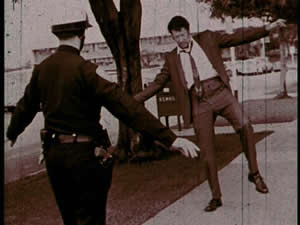Proprioception and Kinesthetic Awarness
/ To feel your body or not to feel your body, that is the question.
To feel your body or not to feel your body, that is the question.If only Hamlet had studied Tai Chi.
The tongue always feels things bigger than they actually are. If I try to feel the size of my hands with my eyes closed, they usually feel bigger than they actually are. I know how big they are supposed to be, but I still feel them bigger. If I keep my hands still for a few seconds with my eyes closed my sense of how big they are starts to morph into other shapes.
Taking drugs can disorient us so much that we do not feel our bodies. They can also cause us to feel our bodies in weird expansive or contracted shapes, or to feel intermittently. But we don't need drugs for this, if you are flirting to someone really hot, you might forget about your own body altogether. A great conversation, reading or writing, watching a movie, all of these everyday experiences can cause us to forget our bodies, to feel them in an exaggerated way, or to drift in and out.
 Traditionally strange feelings and disembodied feelings were covered under the subject: trance and possession. Now we have the scientific categories of proprioception and kinesthetic awareness.
Traditionally strange feelings and disembodied feelings were covered under the subject: trance and possession. Now we have the scientific categories of proprioception and kinesthetic awareness.Extreme relaxation, or extreme stillness often result in the sensation that ones body has no boundaries.
Pain starts with exaggerated feelings of the body and often leads in and out of feelings of disembodiment. There is nothing like getting hit to make you feel your body, but if you are going to keep fighting you need to "shake it off." What is being shaken off? A contracted sense of space?
When big muscles are engaged and experience resistance they cause us to feel our bodies at the expense of our sense of space and movement. Thus my often repeated comment that they make us insensitive. But more specifically what they are doing is making us feel in a limited way. Movement orients us, muscle tension reduces our ability of perceive.
There is a continuum of proprioception ability from superb to dysfunctional. The Sensory Processing Disorder website is a great place to learn about how to recognize proprioceptive problems in yourself and others.
Here is a really nice article that explains how proprioception interacts with other senses.
Here is an article about consciously training proprioception. It got me thinking about how my body learns, but practicing internal martial arts does everything these silly exercises do.
Of course there is always Wikipedia.
The traditional Chinese categories of shen, xin, jingshen, yi, jin, and shi all refer to and encompass aspects of proprioception and kinesthetic awareness. How else could "shi" be translated variously as: strategic advantage, a location at the center of change, potential energy, and the unification of active power with inner quiet.
